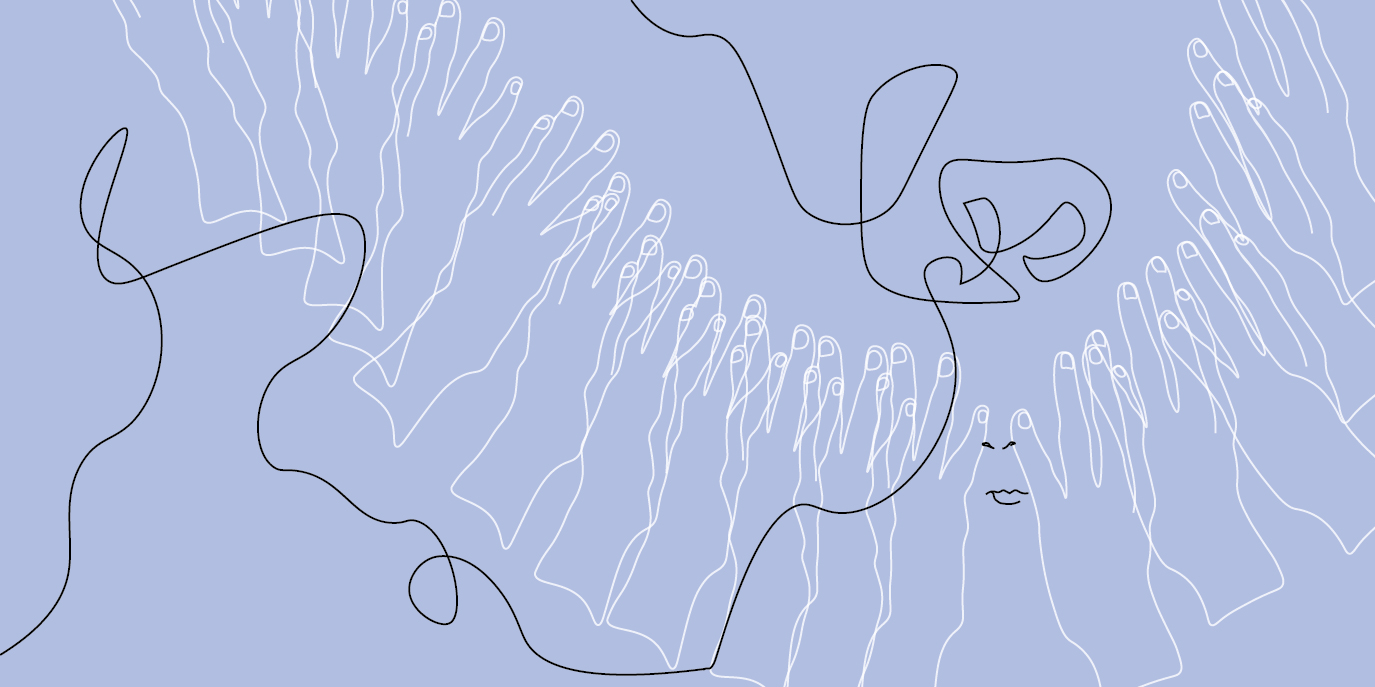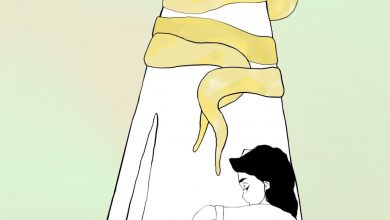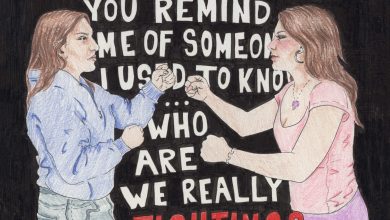How College Wrecked My Mental Health

Illustration by Michelle Wu.
When I stepped into my dorm room at the beginning of my freshman year at UCLA, I felt endless excitement. I was over 1,000 miles from home and knew absolutely no one, but this gave me a newfound sense of independence and confidence. However, this feeling faded fairly quickly. Three weeks into the school year, I found myself questioning my major, my future and my purpose.
This self-doubt festered as I adjusted to my new life. I became obsessive and irritable. A roommate leaving my stapler out of place on my desk could move me to tears. I plunged deep into a void of anxiety with no identifiable safety net.
It’s been a year since I started my freshman year at UCLA. I have since been diagnosed with Generalized Anxiety Disorder and Panic Disorder. My mind often feels as if it does not belong to me anymore. My anxieties have anxieties. My fears have led me to take agoraphobic actions that give me constant shame. My fear of fear itself is no less relentless when it comes to school.
Most days, I return home from class and can do nothing but stare into space for two or three hours before attempting to be productive. When I am finally productive, it can take me four hours to complete a 30-minute assignment. Somehow I always get everything done. However, this is only because of the unidentified looming threat my mind conjures up at the thought of turning in one assignment late.
I’m functioning. I’m learning to work with my mental illness. Yet the fact that my education holds so much power over my mental health does not seem right.
I’m not the only one dealing with this. Plenty of the friends I’ve made in college have mentioned a decline in mental health. Furthermore, multiple studies have shown that over a quarter of college students experience an anxiety or a depressive disorder during their years of educational enrichment.
In my personal experience, college slammed me into a wall of self-doubt. Everywhere I looked I saw someone who was more creative, more intelligent, more worldly, and more experienced than me. I adapted to the honest belief that I was not good enough. I am not alone in this phenomenon either.
Imposter syndrome is a feeling that causes us to see ourselves as a phony. We feel like unintelligent frauds despite any achievements we make. Unsurprisingly, the American college campus is the prime location for this phenomenon to invade.
American ideas of success are based on a system of meritocracy that is painted as a fair and manageable path to prosperity. But many people who become successful in a “meritocratic” system benefit from favoritism because of their gender, race, and ethnicity. As college students, we watch the working world where a select few are coming out on top and push ourselves that much harder to try and “make it.”
In our efforts to have an income when we graduate, we give ourselves over to an American, capitalist idea of success. This definition of success emphasizes maximum profit, productivity, and return. Nevertheless, in a capitalist system there are people and things that get left behind. Likewise, in our pursuit of success in college, our mental health gets put on the back burner. An example of these institutions’ failures cultivates doubly within college students who identify as part of one or more minority communities; in their attempts to keep up with the systems that oppress them, their mental health is attacked twofold.
This is not our fault as college students. From the first day of freshman year, we sit in classes and look at syllabi that often tell us there is absolutely no excuse for turning in an assignment late. We have no choice but to follow these guidelines for success if we want to do well.
We give up hours of sleep and develop bad eating habits as we push ourselves to “get the grades.” We give up exercise as we instead choose to spend hours working or volunteering to keep up with our fellow students in their pursuits of success. This combination of exhaustion, lack of physical wellness, and increasing self-doubt creates the perfect recipe for the mental health crisis that exists on college campuses today.
Of course, not everyone is affected by this system of doom. Some people function well under the pressure. Nonetheless, a lot of us find it difficult to improve our mental health in an environment where extreme productivity is always expected.
Support systems are important to those of us that are struggling to keep up mentally. Many of us can find some support from our friends, but we eventually recognize the need for professional help. Yet college counseling services sometimes feel insincere and unhelpful, and we continue to refrain from asking professors for any sort of extension on an assignment in fear of being marked as a failure.
This lack of protection on college campuses can have fatal consequences. Suicide on campus is something that many of us have become relatively desensitized to, much to the benefit of college campuses who brush these deaths under the rug in attempts to avoid a costly, radical rehaul of their mental health programs.
As a college student, I want to do well. I want to get into graduate school, and I want to get a job I love. However, when the most important aspect of my well-being is at stake, I have a hard time seeing the benefit. We are pushing ourselves to our absolute limits at institutions like American college campuses that do little to change this toxic environment.
For now, I will continue to learn more about my mental illness. I will not be ashamed, nor will I let my mental illness be thrown into the shadows on my college campus. I can only hope that American college campuses will address the blatant insincerity in their passive attempts at reconciling mental health and a corrupt national education system. Frankly, we needed change yesterday.




